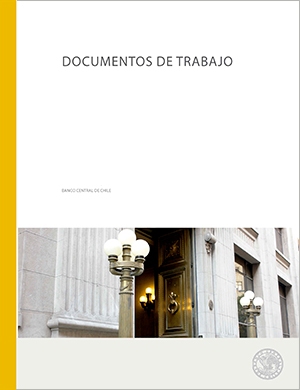Working papers N° 824: Can Economic Perception Surveys Improve Macroeconomic Forecasting in Chile?
Publications
Working papers N° 824: Can Economic Perception Surveys Improve Macroeconomic Forecasting in Chile?
Autor: Nicolas Chanut , Mario Marcel , Carlos Medel
Description
This paper focuses on the value of five economic perceptions surveys for macroeconomic forecasting in Chile. We compare their main features in terms of timing, representativeness, questionnaires, and aggregation of responses. We note the shortcomings of composite indices that combine questions with different focus and time perspective and propose instead eight alternative measures distinguishing between current sentiment/future expectations and between personal/country-wide perceptions. Our results suggest that future and country-wide perceptions are formed with distinct information from personal and current sentiment, and the latter are somewhat affected by the former. When turning to the ability of the existing and alternative measures to contribute to macro-aggregates forecasting, we find a rather strong relationship between personal and aggregate perceptions, consumption actions and actual consumption, especially of durables, outpacing the predictive ability of the existing synthetic indicator. On the business side, the predictive value of surveys seems to be stronger for employment than for investment, while employment and investment seem to Grangercause personal sentiment/expectations. This suggests that while broad perceptions tend to be shaped by independent information, the assessment of the own situation is reassured through actual employment and investment actions. The low ability of economic perception measures to predict investment behavior, in turn, confirms that investment actions are far more complex and projectspecific to be captured by responses to rather broad questions. In all, while surveys of economic perceptions are a rich source of information, it is necessary to select the surveys and questions that are more revealing of present and prospective behavior.
Working papers N° 824: Can Economic Perception Surveys Improve Macroeconomic Forecasting in Chile?
Boxes and graphics

